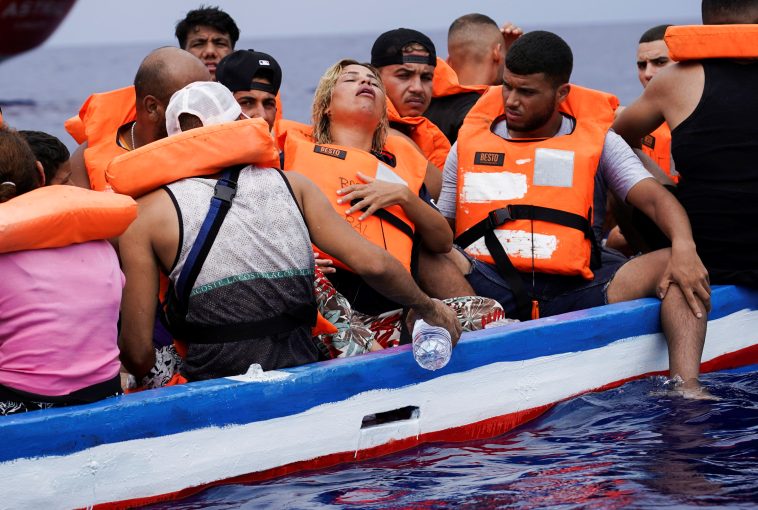This weekend, Sir Keir Starmer plans to visit Italy to study the measures taken by Giorgia Meloni’s government that led to a significant decrease in illicit migrant crossings this year. The Italian authorities announced that a meeting in Rome between Starmer and the Italian Prime Minister is forthcoming. Recognizing Meloni as a crucial ally, Starmer focuses on the ongoing issue of small boat journeys carrying migrants. Their previous conversation took place during the European Political Community gathering at Blenheim Palace, where a mutual commitment towards controlling the global migrant crisis was affirmed.
As one of the primary gates for asylum-seeking migrants into Europe, Italy receives an influx of individuals making the voyage across the Mediterranean from North Africa. Following their arrival, multiple migrants undertake the journey to the northern French coast with the intention to cross the English Channel in smaller vessels and enter the United Kingdom. However, under Meloni’s command, unauthorized immigrants reaching the country via its southern coastline has dwindled by two-thirds to 44,495, as recorded by Italy’s Interior Ministry.
Looking at comparative figures, the count stood at 122,823 at a similar time the previous year and 64,000 during the same frame in 2022. Deputy Interior Minister Emanuele Prisco has observed a striking drop in the number of boat landings over the past half-year, approximately 60% lower, signifying that their strategies to combat human trafficking and secure the national borders are indeed effective.
Italy coordinated agreements parallel to the UK’s £490 million pact with France, wherein funds are utilized for additional police and Border Force personnels to prevent the launch of boats from Tunisia and Libya. Meloni’s administration crafted a more contentious regulation that allows Non-Governmental Organisation (NGO) ships to rescue migrants from a single boat at a time only.
Upon completing a rescue, the directives mandate that the NGOs cannot remain adrift to scan for more boats. Instead, they must immediately head towards the nearest safe harbour made available by the Italian government. These harbours are frequently located in Northern Italy, like Genoa or Ancona, which effectively restricts the rescue ships from conducting further rescue operations for several days thereafter.
Meloni has gone further in her endeavors, by negotiating an agreement with Albania to offload asylum seekers from Italy to the Balkan nation where their claims can be put through the process. This consensus is slated to endure for an initial span of five years, permitting the offloading of up to 36,000 migrants a year at the Albanian port of Shengjin, situated roughly 40 miles to the north of the capital city, Tirana.
The refugee applications will be reviewed at a center under construction near the Gjader airbase, with an accommodation capacity of about 3,000 individuals. This approach is distinct from the Tories’ proposed proposal to transport asylum seekers to Rwanda in central Africa, who would not have the opportunity to return to the UK once deported.
In an earlier statement this July, Sir Keir hinted at the possibility of the UK also opting for an ‘offshoring’ strategy for the processing of asylum claims. However, he emphasized that the main objective for the 44 leaders, including himself, remains strategies to dismantle smuggling syndicates exploiting desperate individuals.


